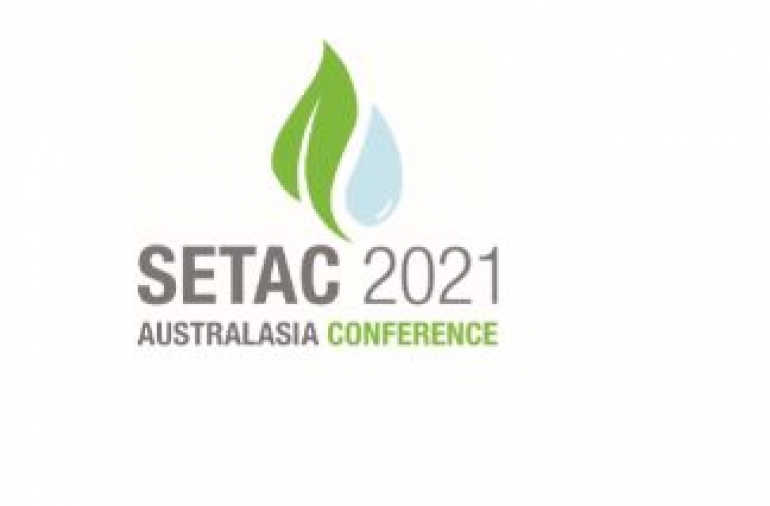Latest news
Read the latest news from the Centre for Sustainable Materials Research and Technology

Watch this video of Veena's plenary speech to the joint 7th WIOW Symposium and SETAC 2021 Australasia Conference, talking about the need to align recycling and manufacturing and some of the UNSW SMaRT Centre technologies creating sustainable materials and products from waste resources.
Veena's section starts at 32 min 53 sec:
Pre event content:
On 30 August 2021, Veena will deliver a plenary speech to the joint 7th WIOW Symposium and SETAC 2021 Australasia Conference, talking about the need to align recycling and manufacturing and some of the UNSW SMaRT Centre technologies creating sustainable materials and products from waste resources.
The four-day 'virtual' conference, hosted by the Society of Environmental Toxicology and Chemistry (SETAC) Asia-Pacific geographic unit, will concurrently run the 7th What's in Our Water (WIOW) Symposium series, bringing together researchers, environmental engineers, resource managers, regulators, policy makers and academia from Australasia, along with international keynote speakers.
SETAC AU is dedicated to the use of multidisciplinary approaches to examine the impacts of chemicals and technology on the environment. The Society also provides an open forum for scientists and institutions engaged in the study of environmental problems, management and regulation of natural resources, education, research and development, and manufacturing and distribution to exchange information and share opinion across nations and disciplines.
Details
Date / time: joint 7th WIOW Symposium and SETAC 2021 Australasia Conference, 30 August - 2 September.
Outline of Veena's plenary and biography:
Title: Aligning recycling and manufacturing: SMaRT technologies and MICROfactories® creating sustainable materials and products from waste resources
We need to look at waste, recycling and manufacturing in a new way by acknowledging the valuable materials contained in waste. Virgin resources are finite and rather than sending waste to landfill or other unsustainable disposal methods, we need to recycle and reform the valuable materials contained in waste to help supply the new products and materials needed by societies in the future.
And with the growth in electric vehicles, wind turbines, domestic solar systems, and so many batteries needed for power storage and the huge range of electronic devices such as phones and computers, a new challenge for the UNSW SMaRT Centre is researching and demonstrating how we can reform materials embedded in various waste batteries, such as cobalt and nickel, and how we can recycle and reform many of the materials contained in electronic waste that contain copper, manganese, zinc, gold and various rare earth elements.
Therefore waste itself can, and should, be seen as a resource if we want to electrify the world and be more sustainable in managing our materials and waste impacts. Using pioneering microrecycling-based techniques and innovations like UNSW Sustainable Materials Research and Technology (SMaRT) Centre’s MICROfactorie® technologies to reform waste into value added materials, means we can also accelerate the ‘advancing’ of our sovereign manufacturing capability in a COVID-19, supply chain-constrained era. By aligning manufacturing and recycling in this way, communities can become more resilient, sustainable and prosperous by generating revenue from waste.
This presentation explores and provides examples of how we can take so called “end of life” waste products and reform them into materials for remanufacturing, including technologies which can transform waste such as glass and textiles into ‘green ceramics’ for the built environment, and plastics from e-waste and other waste sources into filament as a resource for manufacturers and other users for 3D printing.
Bio: Scientia Professor Veena Sahajwalla is the Director of the UNSW SMaRT Centre (Sustainable Materials Research & Technology). Her research interests include sustainability of materials and processes with emphasis on environmental benefits. She invented an environmentally friendly process for recycling plastics and rubber tyres in electric arc furnace steelmaking. She is an international award winning engineer. In 2012 she was named Overall Winner of the Australian Innovation Challenge Award. She was awarded the 2012 Banksia Award, the GE Eco Innovation Award and the 2005 Eureka Prize for Scientific Research. She has established excellent working relationships with national and international organisations. She was an ARC- Future Fellow and a long-serving judge on ABC television’s The New inventors.